Photo by AP via
ABC News
 PROF. JAYADEVA UYANGODA-04/30/2020
PROF. JAYADEVA UYANGODA-04/30/2020
The threefold crisis that our country faces— public health, the constitutional, and political—is exacerbating day by day. In the latest development, a number of soldiers of the naval and special task forces of the Welisara and Seeduwa camps, who have been on front-line duty, have contacted the virus. At the same time, the virus has begun to spread in new villages outside Colombo and among low-income neighbourhoods in the Colombo city. These developments have further compounded the already complex problems caused by the coronavirus pandemic.
The government’s militaristic thinking and mind-set have led to the following policy measures:
- Instead of obtaining the assistance of the armed forces to manage the behaviour of civilian populations as required during a public health emergency under the leadership of a civil administration, the civil administrative structure itself has been placed under military authority.
- The fundamental difference between a ground war against ‘terrorism’ and a civilian operation against a virus in order to restore public health under conditions of a pandemic was ignored.
- It is, in fact, unimaginable that the only protective gear provided for soldiers who went in search of and eventually captured those suspected corona-contacted individuals did not have personal protection equipment except face masks. Allowing these troops to go back to their villages on leave with no precautionary quarantining or strict health advise shows an inexplicable disregard for the dynamics and behaviour of the coronavirus. It is important to understand that there is only a very limited role that the military uniform and the automatic gun can play in this very different ‘war’ against a very different ‘enemy’, the corona virus.
Another expression of the President’s strategy to defeat the corona epidemic through a militaristic approach was the belief that he could conclude this ‘war’ too unilaterally, in accordance with his own political agenda, and that he alone being entitled to the glory of the victory. The President must at least now be open to accept at least the basic differences between these two campaigns of ‘war.
No military-type solution
This new situation sends an important message to the government as well as the President—that there is no military-type solution to the public health crisis caused by the spread of the coronal epidemic. The President launched the ‘war’ against the corona virus, comparing it with the successful military operation that defeated LTTE terrorism. However, what observers speculated upon hearing his statements on television is now, unfortunately, being affirmed; that a military approach does not solve, but rather can even worsen, the problem that could go beyond its public health parameters and in turn lead to crises in other domains too.
It is now the time to take a critical look at the strategy that has been implemented so far by the President and his military and medical advisors with regard to the corona public health crisis. The first phase of the government’s strategy is now over with success in a range of areas. Paradoxically, it has not brought about rapid normalization as promised by the President and his team. Initial successes in the public health front are paralleled with a range of social problems that still await acknowledgment. Meanwhile, the pandemic itself is threatening to enter into the phase of community spread. It has now begun to target the urban poor and the working class as well as the rural poor, indicating that the pandemic has begun to operate along class cleavages. The President’s acknowledgement of this social reality of the public health challenge should be the first step towards such a review. The second phase should be designed only after recognizing that there can be no military approach to solving this crisis which is now spreading into political, constitutional, economic and social spheres as well.
Acknowledging that there is no military approach to solving the pandemic-induced crisis of several levels is not to say that the military and the police have no role to play in managing the public health crisis. It only means that the military approach as well as the militaristic thinking, calculations and mind-sets should no longer be allowed to dominate the government’s overall thinking as well as the government’s immediate strategy to manage the public heath crisis. The limits of the military-mind set are likely to be particularly pronounced in the President’s handling of the political, constitutional and social dimensions of the general crisis precipitated by the public health crisis.
A New Approach
A non-militaristic strategy to contain and eventually end the present crisis is urgently needed. The first element of such a new strategy should be to demilitarize the present ‘operation’ that has been launched. This does not mean the removing the armed forces and the police from the duties of public security or functions elating to maintaining the law and order as well as medical and administrative emergencies. However, their participation should be regulated within a framework of a structure under the joint leadership of civil administrative officials and representative participations of medical experts. An example of civilian leadership over the military in peace times is the mobilisation of the police and armed forces during the election period under the direction of the Election Commission. The guiding governance principle here should be the civilian control of the military’s role in the public health emergency. Meanwhile, the GMOA’s role in formulating the President’s strategy has already become controversial and there is a growing sense that broadening of the stakeholder participation in decision making has become urgent.
The second element of the new strategy should be the President opening up and widening his political reach. This means that his current suspicion of and rivalry against opposition parties is suspended and that he enables the government strategy to benefit from a broad spectrum of political and policy consultations, ideas, policy inputs as well as disagreements and debates. Such a shift in basic political attitudes in a moment of exceptional global and national crisis should enable a measure of constructive cooperation between the President and the opposition political parties and other stakeholder communities.
The bitter rivalry between the present ruling party and the opposition political parties that was heightened during the presidential election. It continues to cast its dark shadow over the political landscape. This relationship of enmity between the two main camps of Sri Lanka’s political class has also caused a deep mutual mistrust between them. It has now led to a situation in which the parliament and the executive –two main organs of the state – are once again thrown into an unnecessary power struggle. The hostility that the President’s camp has been showing towards the institution of parliament under the present constitution only bodes ill for Sri Lanka’s democratic constitutionalism. The present public health emergency, the future directions of which remain uncertain and unpredictable, should not be the moment for such a breakdown of relations between two key organs of the state, because it will have grave consequences for democratic governance.
Instead, challenges presented by the current crisis should be managed through more, and not less, democracy. That is also why the government’s military approach to the corona crisis needs to be replaced by a more open, consultative and civilians-led process in which all opposition political parties too have apace for participation.
Thus, in the current context in which the Parliament is dissolved and it remains inactive, and where the only branch of the state structure that remains active, actually super active, is that of the Executive headed by the President. Therefore, it is not at all a bad thing for the President to open himself up politically and reach out to his political rivals and many others outside his own close constituencies. Such democratic openness will also ensure that not only the credit for success, but also the blame for any failures could also be shared among all without acrimony.
The Election Crisis
Of course, the constitutional and political crisis in the wake of the dissolution of parliament and the inability to hold the parliamentary election within the stipulated time as mandated by the Constitution is also no less significant. The worsening of the condition of this crisis is heightened by the following:
- The Election Commission itself has been expressing doubts as to whether the election could be held on June 20, which is the new date set by the Commission.
- The possibility that the current period of uncertainty may persist until the end of May, according to the new trends in infection.
- As is known by now, the serious constitutional uncertainty that will ensue if a new parliament is not elected by June 02. One of the main arguments emerging in the light of this is that if a new parliament is not elected by June 02, the President’s dissolution of parliament on March 02 would automatically become invalid. This would mean that the old, dissolved parliament will be back in force.
- Similarly, there is a continuing dispute over the question whether it is the President or the Election Commission that have the legally valid authority to determine a new date for the parliamentary election.
Against this backdrop, a few unusual constitutional questions are likely to arise. For example, will the dissolved parliament be reactivating itself by default after June 02, when the dissolution period of three months comes to an end without a new parliament being elected? On the other hand, is it a part of the scheme of things as envisaged by the some that the Parliament, having been unable to replace its old self by a new one as required by the Constitution, will exhaust its life as an institution of the state? Will that open up space for unconventional solutions, outside the framework of the present constitution, to the emerging crisis? These are very difficult questions to answer. Nevertheless, they are hovering in the horizon.
A win-win solution?
What is in store for the citizens of Sri Lanka is likely to be a major politico-constitutional crisis the consequences of which may prove themselves to be unimaginably severe. At stake would be the very existence of constitutional governance in our country. This impending constitutional calamity needs to be avoided. It requires imaginative, out- of -the box and courageous thinking and action on the part of the political leadership.
Therefore, this is the moment for the President, the Prime Minister and his party, opposition parties as well as groups and individuals who influence the public opinion of the country to start a new conversation about at least a tentative, crisis-prevention alternative course of action.
Looking at the available options from the point of view of the President, who received a popular mandate as recently as five months ago, re-summoning of parliament is a measure that falls well within the Constitution and law. Rescinding the dissolution order of parliament by a new order is perhaps the least complicated in terms of implications of the action. Although it is an action that has no precedence, it can be justified by the continuing uncertainty about the holding of elections as well as constitutional complexities that arise because of the non-holding of election due to the continuing pandemic. It also keeps the option open for the President to dissolve parliament again at a time of his choice, and perhaps in consultation with the Election Commission. It is true that there is no explicit provision in the constitution for recalling a dissolution order However, the President has the power to re-call, amend or revoke a previous order he may have made. The Interpretation Ordinance provides for it. Thus, revoking the dissolution of parliament is not unconstitutional, as the President seems to think, or is probably advised to think.
The second option is creating conditions for re-summoning the dissolved parliament by making a proclamation, under Article 70 (7) of the Constitution, that a public health emergency has arisen. Such a proclamation will enable the President to issue another proclamation summoning the parliament which has been dissolved after three days of such proclamation.
Although no such proclamation has been made as yet, what we are facing is indeed a situation of emergency. It is a public health emergency that has forced the government to respond in an emergency-footing. President has deployed the armed forces to assist the health authorities, appointed the Army Commander to head the Presidential Task Force, while the police, obviously on President’s orders, has declared curfew, and begin to enforce lock downs. The government is also employing military intelligence agencies to enforce ‘contact tracing’, which has serious implications for individual rights. By deploying the armed forces, the government has also been compelled to take measures to protect the populations and maintain at least semblance of normality in public life. This is indeed an undeclared state of emergency in two fundamental meanings of the concept: (a) the executive branch of the state is forced to acquire and exercise exceptional powers, without explicit parliamentary sanction, and (b) certain key freedoms and liberties of citizens have been curtailed and suspended by executive actions. If this is not an emergency, what else can be?
If the President makes a proclamation under the Article 70 (7) or under Article 155 (3), such proclamation makes it necessary for the dissolved parliament to be reactivated. A reactivated parliament shall remain in force until the end of the emergency, or until the parliamentary election is held.
The challenge we face in this context is how to persuade the President to choose either of those two constitutional alternatives to deal with the political aspects of present public health emergency. One thing is clear: the President’s choice for re-summoning the dissolve parliament cannot, should not, be a unilateral process. It has to be part of a political deal, a mutually beneficial political bargain between the President and the opposition.
It seems that the President’s camp is of the opinion that the choice of either of the above options leading to summoning of the dissolved parliament will be advantageous to the opposition parties in an unfair and partisan manner. They do not want opposition parties to gain even an inch of advantage in what they see as a positional warfare. Additionally, they have the apprehension that if Parliament is re-summoned, the opposition will use this to defeat, or disrupt or embarrass the President and the government. The trust deficit between the two camps is a part of the on-going political reality.
In this context, the President, the government and the opposition will have to think rationally — or prudently, if we use a normatively inclined term — about the emerging crisis, and take action that will serve everyone’s enlightened self-interest. The following might be considered as suggesting such a prudent course of action:
- Both the government and the opposition can be in a win-win situation if Parliament is summoned. For the government, a re-summoned parliament will enable them to update the old public health and safety laws with new ones appropriate for a modern society and pass new legislation. Further, the curfew, the legality of which is still unclear, can be validated through parliamentary sanction as well as new legislation. Concurrently, the government can make yet another gain. That is, it will be able to obtain the funds necessary for public expenditure after April 30 with the approval of Parliament. As things stand as of now, funds for government expenditure are to be obtained on the basis of the Article 150 (4) of the Constitution. Whether or not this course of action is constitutional remains unclear. Matters that are in constitutional and legal grey zones can be cleared.
- The ‘victory’ the opposition parties can secure is the opportunity to participate as partners in the process of controlling and ending the spread of corona epidemic which has now become a national crisis. It can also contribute to an all-party effort to avoid a totally unnecessary constitutional crisis.
It is in this context that the President could perhaps respond positively to the joint opposition statement offering ‘responsible cooperation’ until the corona crisis is reasonably managed and the postponed parliamentary elections are rescheduled. At the core of that offer is re-summoning of Parliament by the President either by rescinding the dissolution order or by exercising his power under Article 70 (7) of the Constitution. The statement also seeks to alleviate the President’s camp’s apprehension that the opposition’s proposal is probably motivated by a hidden political agenda.
This is the moment in which the claims of political maturity by Sri Lanka’s political leaders will be put to severe test.
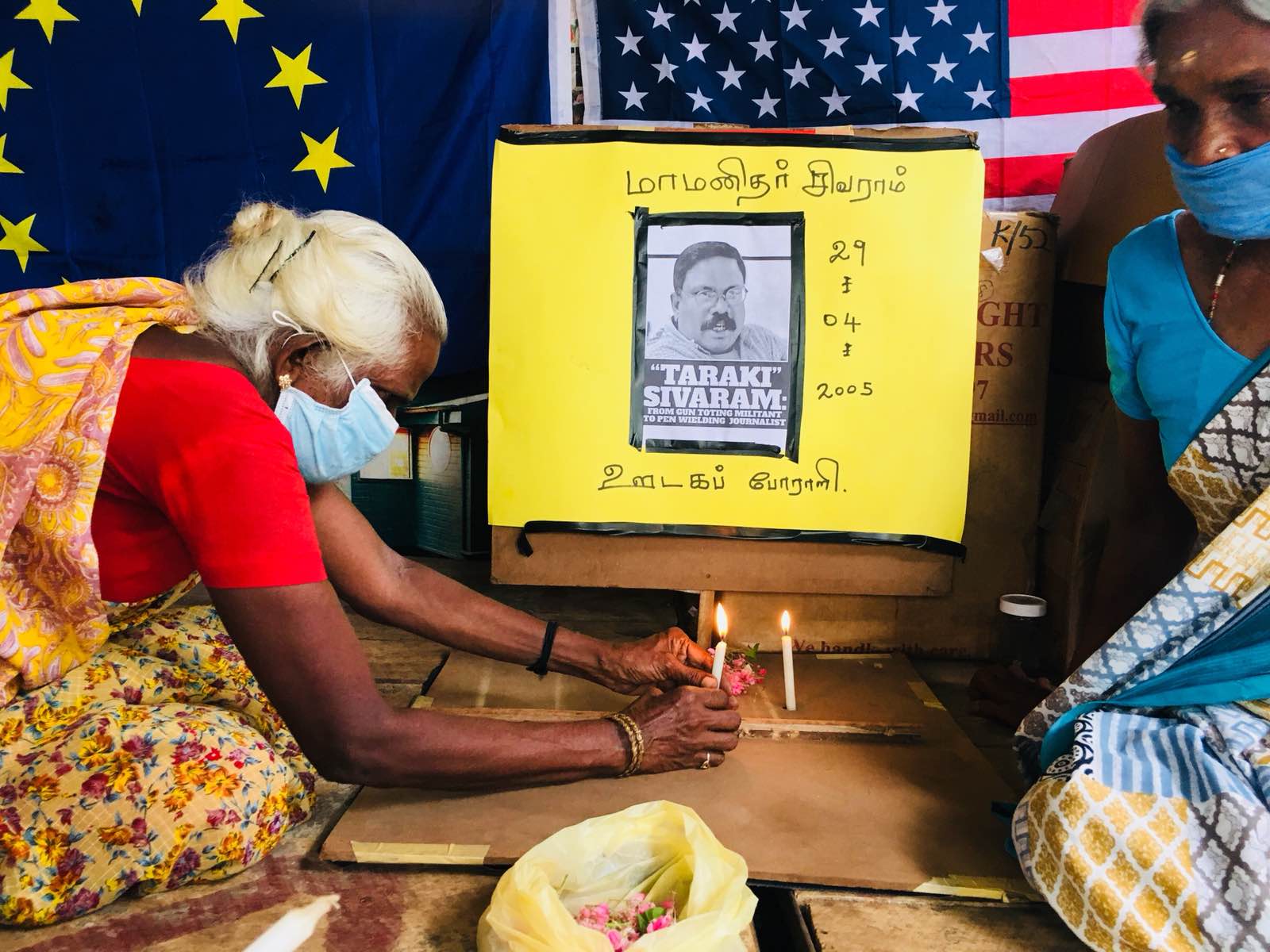 Memorial events were held across the Tamil homeland this week to mark 15 years since the assassination of Tamil journalist Dharmeratnam ‘Taraki’ Sivaram.
D. Sivaram, also known as Taraki, was a renowned journalist and editor of the website TamilNet, who was abducted on 28 April 2005. His body was found the following day inside a High-Security Zone in Himbulala, a Sinhala suburb of Colombo.
Memorial events were held across the Tamil homeland this week to mark 15 years since the assassination of Tamil journalist Dharmeratnam ‘Taraki’ Sivaram.
D. Sivaram, also known as Taraki, was a renowned journalist and editor of the website TamilNet, who was abducted on 28 April 2005. His body was found the following day inside a High-Security Zone in Himbulala, a Sinhala suburb of Colombo.
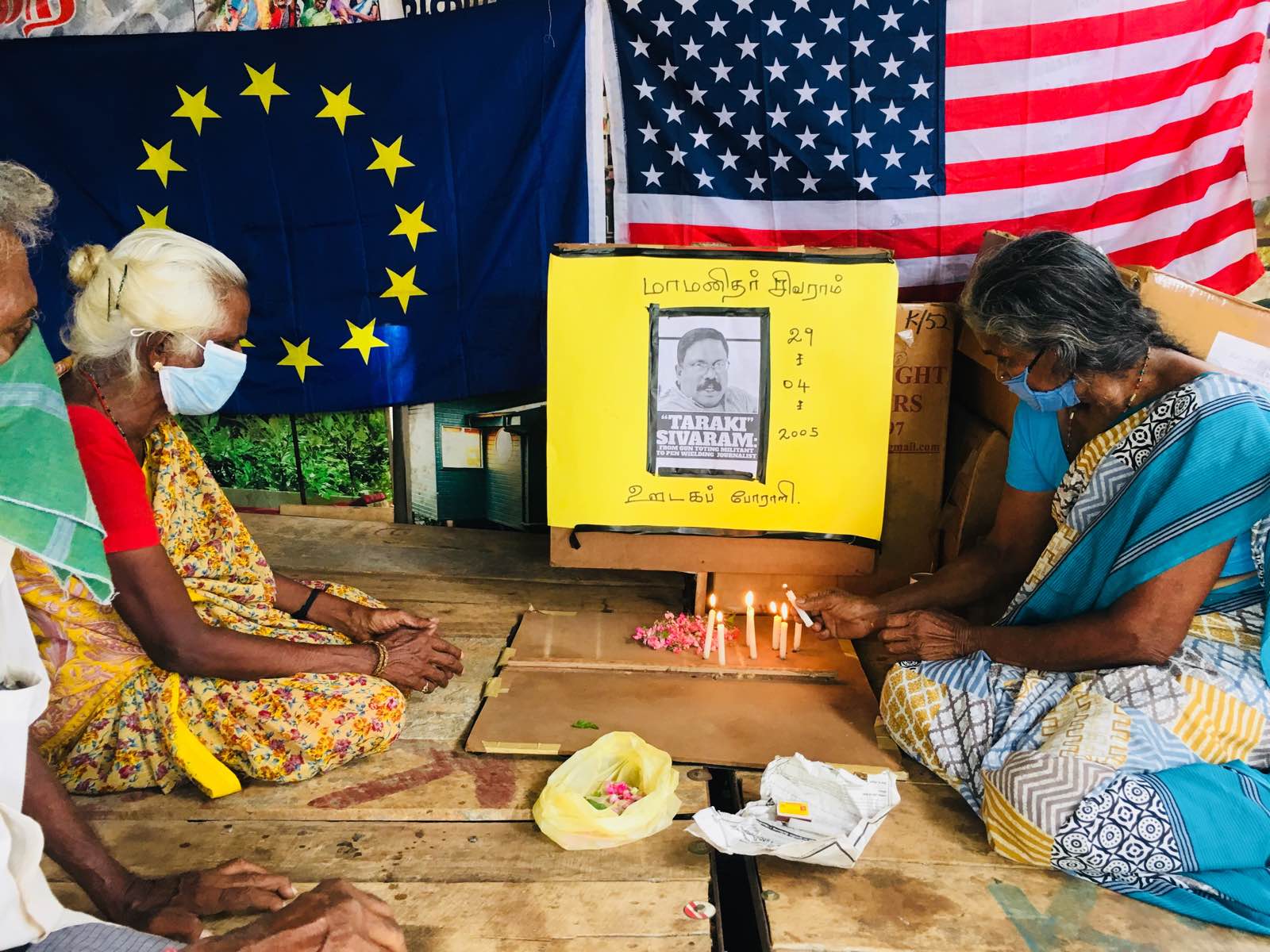 Families of the disappeared in Vavuniya lit candles, as they remembered the slain Tamil journalist on day 1167 of their protest.
Meanwhile, the Jaffna Press Club marked the anniversary of the killings of Sivaram and Selvarajah Rajivarman in another remembrance event.
Families of the disappeared in Vavuniya lit candles, as they remembered the slain Tamil journalist on day 1167 of their protest.
Meanwhile, the Jaffna Press Club marked the anniversary of the killings of Sivaram and Selvarajah Rajivarman in another remembrance event.
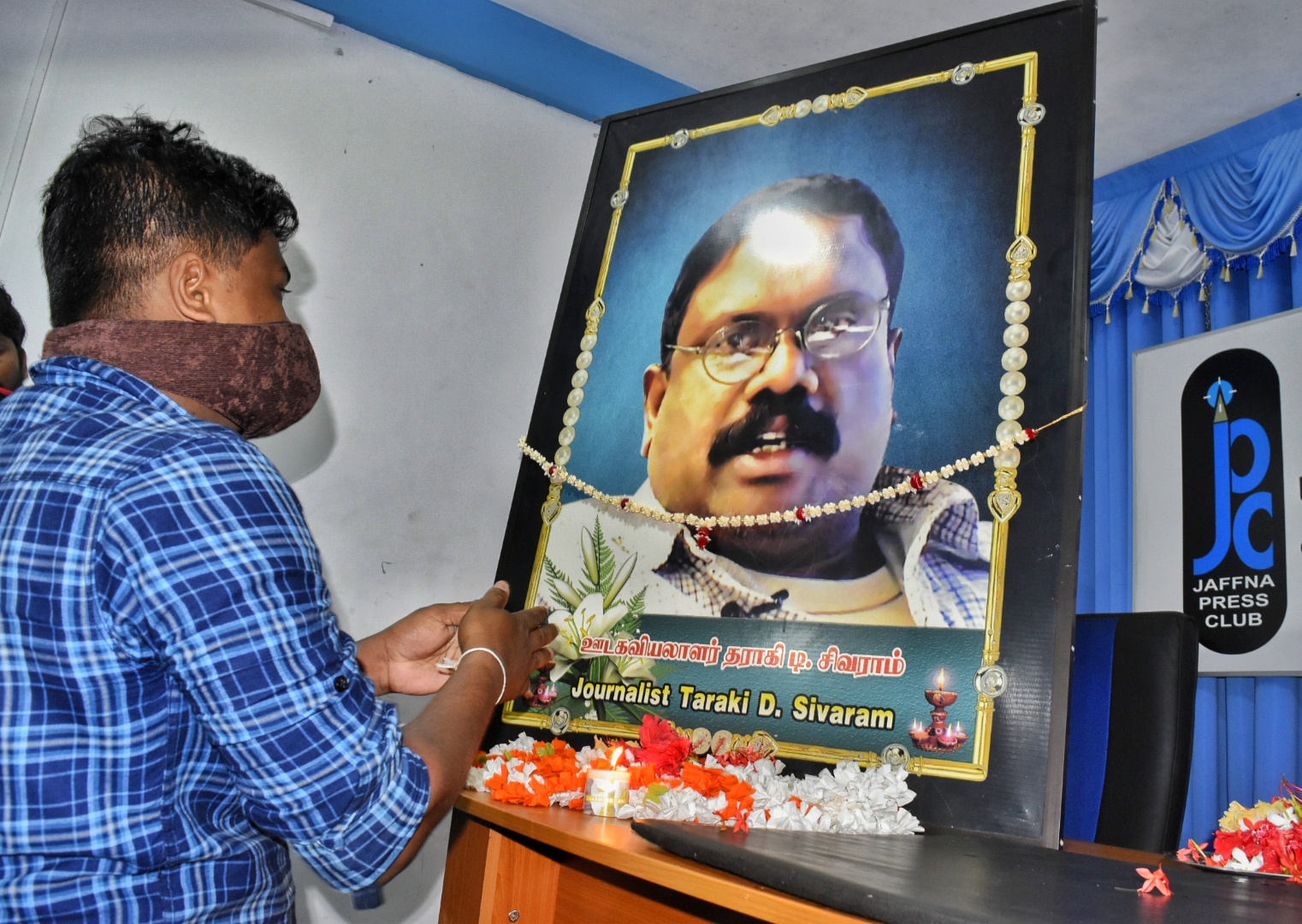 Selvarajah Rajivarman, a journalist who worked for Namathu Eezhanadu and Thinakkural before joining the Uthayan, was killed two years to the day, by a lone gunman in the middle of Jaffna town. He was just 25-years-old at the time.
Selvarajah Rajivarman, a journalist who worked for Namathu Eezhanadu and Thinakkural before joining the Uthayan, was killed two years to the day, by a lone gunman in the middle of Jaffna town. He was just 25-years-old at the time.
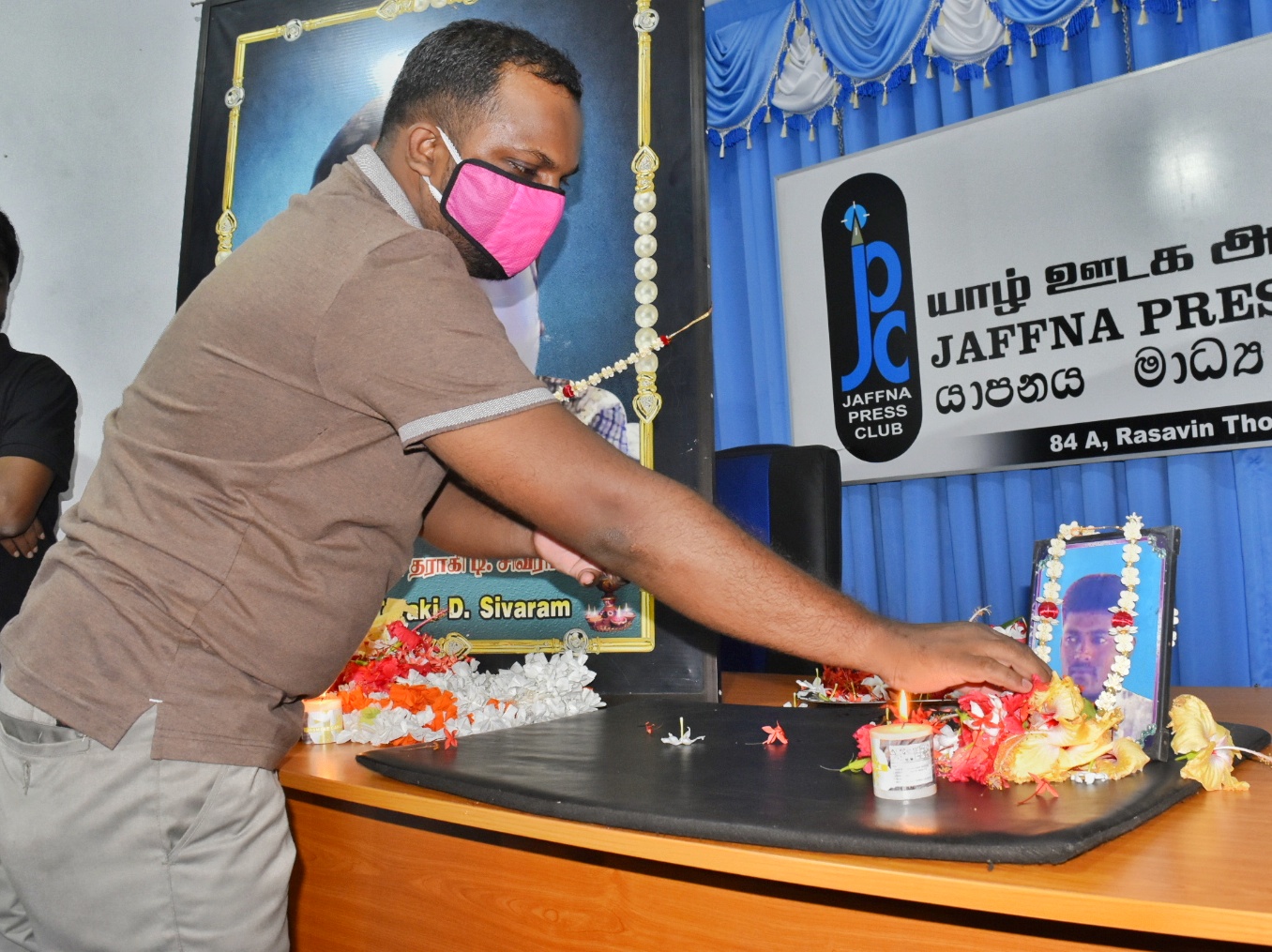
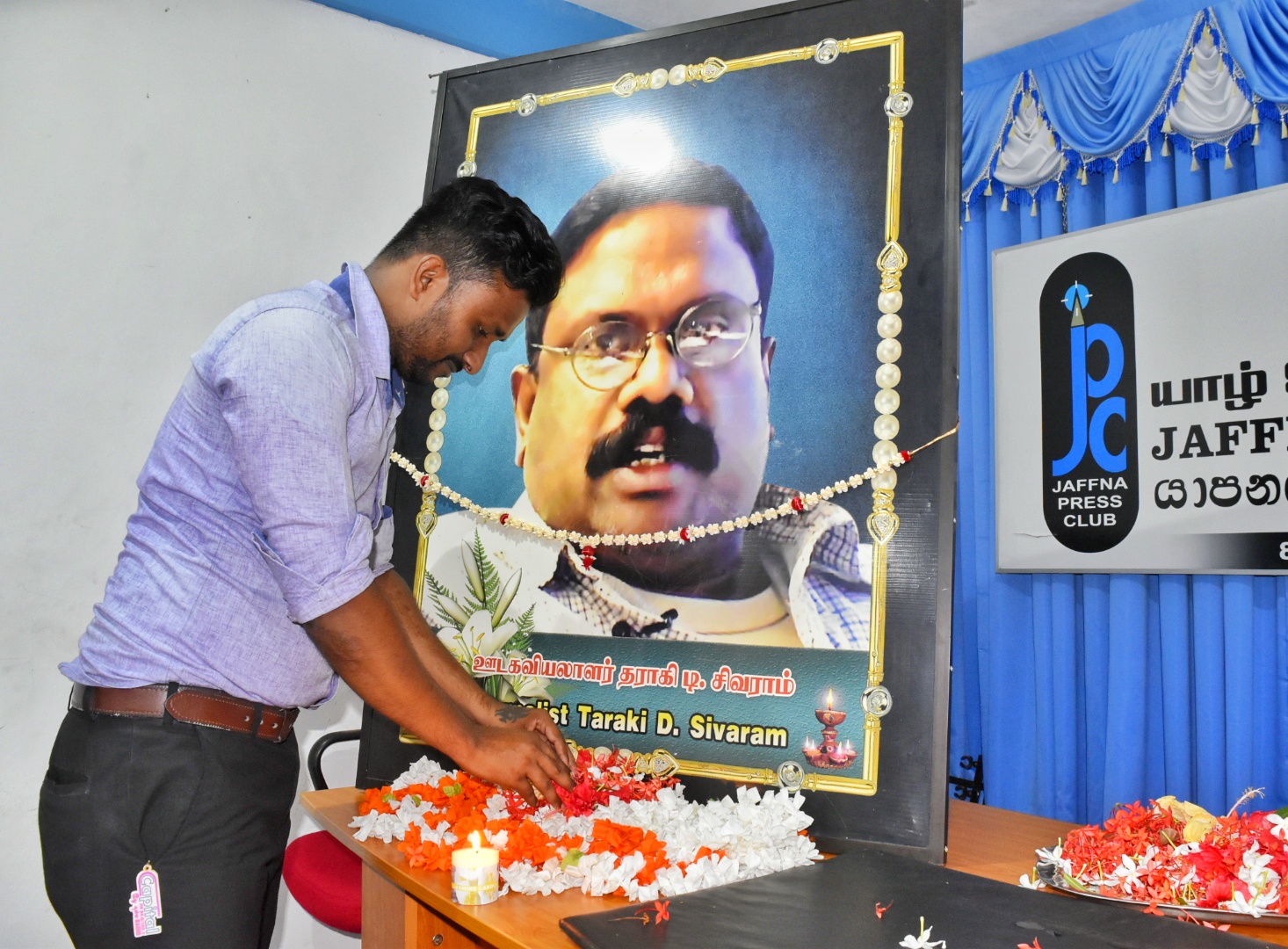 In Vavuniya, Tamil journalists paid tribute to Sivaram in a memorial event organised this week.
In Vavuniya, Tamil journalists paid tribute to Sivaram in a memorial event organised this week.
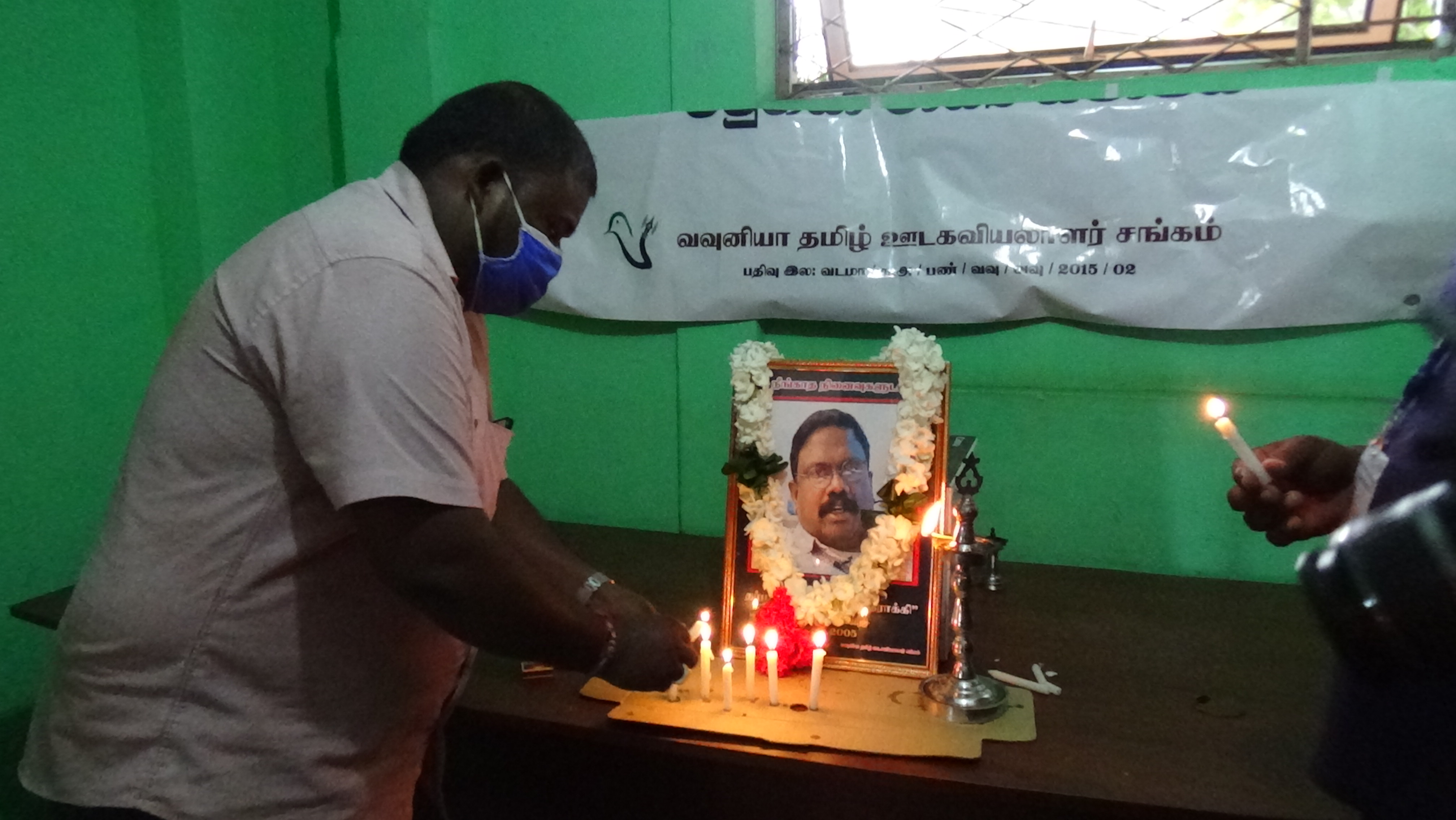 The TNPF office in Batticaloa also paid tribute to the murdered journalist.
The TNPF office in Batticaloa also paid tribute to the murdered journalist.
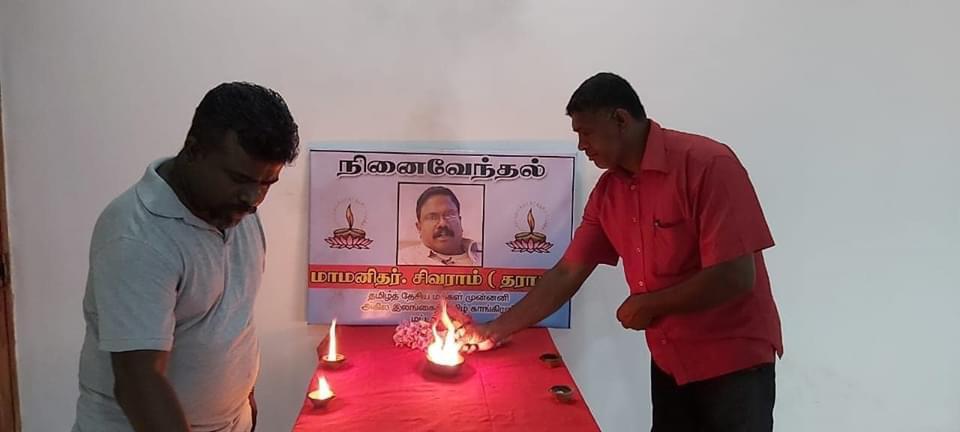 See more on Sivaram here.
See more on Sivaram here.













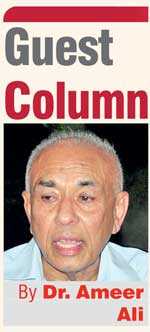






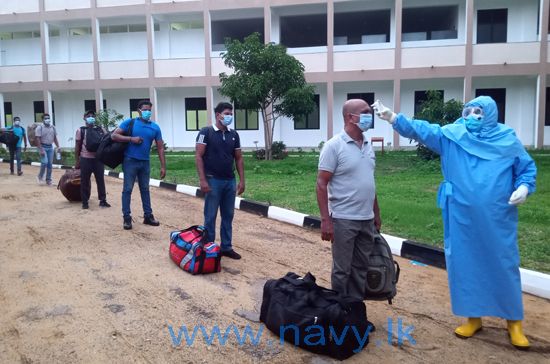
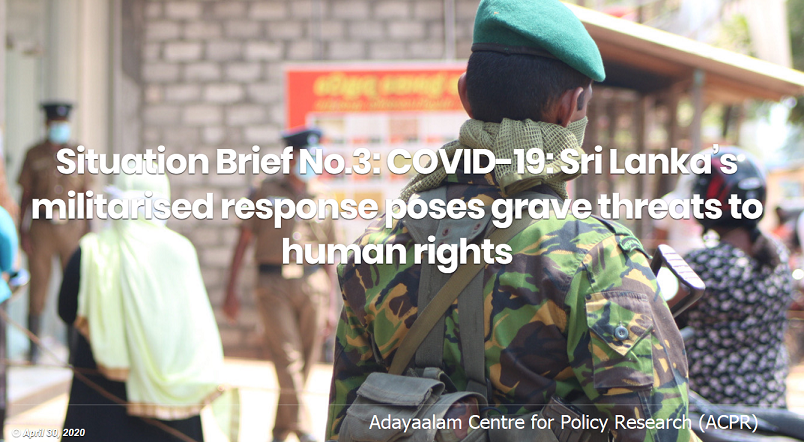
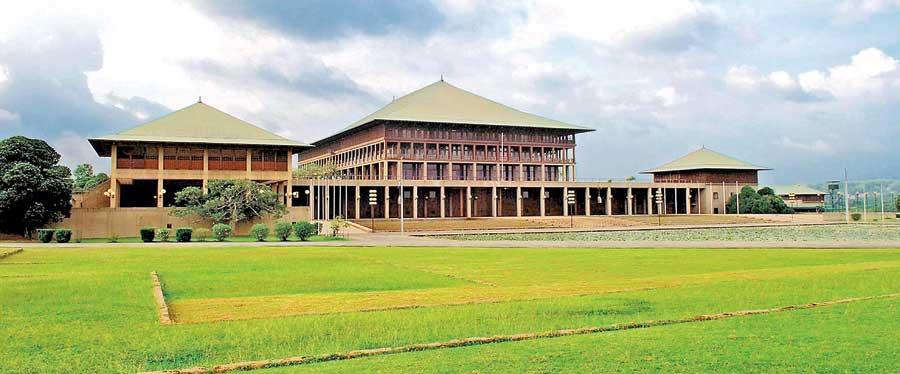

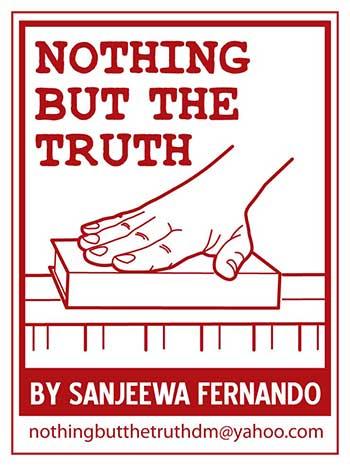 Parliament. In the event the government needs to borrow more money for the purposes of countering the pandemic medically as well as for the restoration and revival of the civil life, such measures have to be done according to the constitution. That means that such monetary and fiscal measures have to be done by the Parliament and Parliament alone.
Parliament. In the event the government needs to borrow more money for the purposes of countering the pandemic medically as well as for the restoration and revival of the civil life, such measures have to be done according to the constitution. That means that such monetary and fiscal measures have to be done by the Parliament and Parliament alone. 
